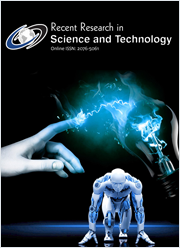Blood glucose regulating hormones and their physiological and biochemical roles
DOI:
https://doi.org/10.25081/jes.2020.v11.6570Keywords:
Hormones, Hyperglycemia, Hypoglycemia, Insulin, Glucagon and Glucocorticoids.Abstract
Regulation and coordination of different body organs is important in multicellular organisms. Hormones and the nervous system participate in this synchronization. Hormones are the compounds and chemical messengers produced by cells, glands, or special tissues called the endocrine system and released into the bloodstream. In addition to the hormones, blood is consist of proteins, sugars, lipids, vitamins, etc. Blood sugar is glucose which produces energy in the body. Regular blood glucose levels vary at different ages and exceed 120-170 mg / dl. It is harmful and even fatal to increase or decrease it from the normal level, so the concentration of glucose dissolved in plasma was subject to tight regulation and various regulatory mechanisms were developed thereon. Hormones cortisol, glucagon, adrenaline, and glucocorticoids are the major regulators. These substances are tracked regularly to prevent blood glucose from rising and dropping. Insulin consists of hyperglycemia, as well as other hormones. The mechanism by which it affects the metabolism of the food (carbohydrates, lipids, proteins) prevents hypoglycemia in several respects.



 .
.